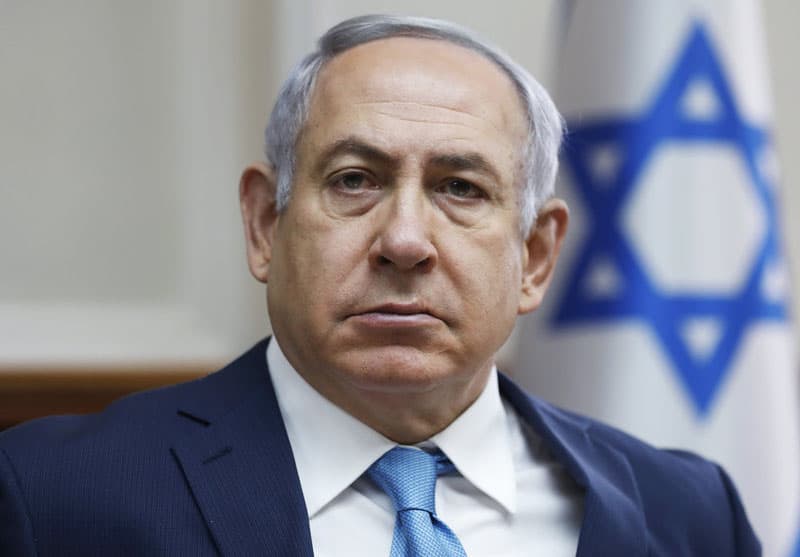Jerusalem: Israeli Prime Minister Benjamin Netanyahu undertook a controversial visit to the flashpoint West Bank city of Hebron Wednesday, to commemorate the anniversary of the 1929 killing of Jews there.
The visit was a rarity and came just ahead of Israel’s September 17 elections, with Netanyahu seeking to attract votes from the country’s nationalist right.
He attended a ceremony marking 90 years since 67 Jews were killed by Palestinian rioters in Hebron.
Today around 800 Jewish settlers live under hefty Israeli army security in the city, surrounded by around 200,000 Palestinians.
“We’re not seeking to disinherit anyone, but nobody will disinherit us,” Netanyahu said at the ceremony.
“We’re not strangers in Hebron. We’ll stay in it forever.”
The area was under heavy guard for the ceremony — which also attracted other Israeli politicians — with soldiers, explosives experts and sniffer dogs all present.
The Palestinian Authority condemned his visit — his first since 1998, according to Israeli media — as “provocative” and politically motivated.
“This is a purely colonialist, racist visit that Netanyahu is doing at the height of an election battle in an attempt to win votes from the right and the extreme right,” the PA’s foreign ministry said in a statement.
Palestinian activists from Youth Against Settlements raised a giant Palestinian flag in the area.
Palestinian youths threw stones and firecrackers at soldiers in the city centre who responded with rubber bullets, witnesses said.
Israeli President Reuven Rivlin was among those attending and called for Israelis and Palestinians to learn to coexist.
“Hebron is not a barrier to peace,” he said.
“It is a test of our ability to live together, Jews and Arabs, to live decent lives side by side.”
After his address, Rivlin visited the site known to Muslims as the Ibrahimi Mosque and to Jews as the Cave of the Patriarchs — revered by both faiths — where he said a prayer, his office said.
Netanyahu is fighting for reelection in a campaign in which settler votes will be key in his efforts to build a right-wing coalition.
Hebron has seen regular unrest.
In 1994, Israeli settler Baruch Goldstein killed 29 Muslim worshippers there with an assault rifle before being beaten to death by survivors.
Israeli settlements are seen as illegal under international law and a major obstacle to peace, as they are built on land the Palestinians see as part of their future state.

